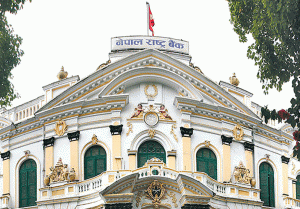
Op-ed pages of broadsheet dailies published in Kathmandu on Tuesday have given space to issues such as Nepal-China-India ties, the declining returns in agriculture, the replacement of the Muliki Ain (Civic Code) and efforts to amend the constitution to meet the demands of the Madheshi parties.
China, Nepal and India

Just a few days after Indian foreign minister Sushma Swaraj wrapped up her visit to Kathmandu, Chinese Vice-premier Wang Yang is in Nepal. The visits, as well as the current standoff between India and China over Doklam, have put trilateral relations on the spotlight. In this context, Som P Pudasaini in his piece for Republica, says whether Nepal will become stable or not will depend on two factors: the fate of the new constitution and the country’s external relations, especially with India and China.
He argues that Nepal’s decision to join the BRI and stay neutral on the Doklam issue is wise. He suggests that during Wang’s visit, Nepal should quietly raise the issue of Lipulekh trijuncture and bypassing of Nepal’s rights over it by India and China.
Farmers’ woes

Food security has long been an issue of concern for Nepal. With most of its youth population working abroad, fertile land remains fallow and productivity is on the decline. In this context, Dharani Kumar Sharma in his piece for The Kathmandu Post says while farmlands are barren in many areas, some districts are suffering from food deficit. He adds that in addition to this, declining rainfall, decreasing river discharge and the deteriorating potential of river floods to naturally restore soil fertility have made farming a low-return occupation. He concludes by saying that the future looks bleak with young people going away from agriculture.
The end of Mului Ain

Nepal’s Parliament will soon replace the hundred-year-old Muluki Ain. In this context, Usha Thapaliya in her piece for Annapurna Post says there are many positives to the Criminal Code recently passed by the House. The law makes Chhaupadi illegal, it curtails the power given to the judge to use personal judgement to decide on the quantum of punishment. That is why the new law is a lot progressive.
The issue of constitution amendment

RJPN, which has emerged as the main party in the Terai, has been saying it won’t contest any elections before the constitution is amended to meet its demands. RJPN leader Brijesh Chandra Lal in his piece for Nagarik says although the amendment registered in Parliament does not address the demands of Madhesh, if it is passed it will help the constitution get more support from the people.























